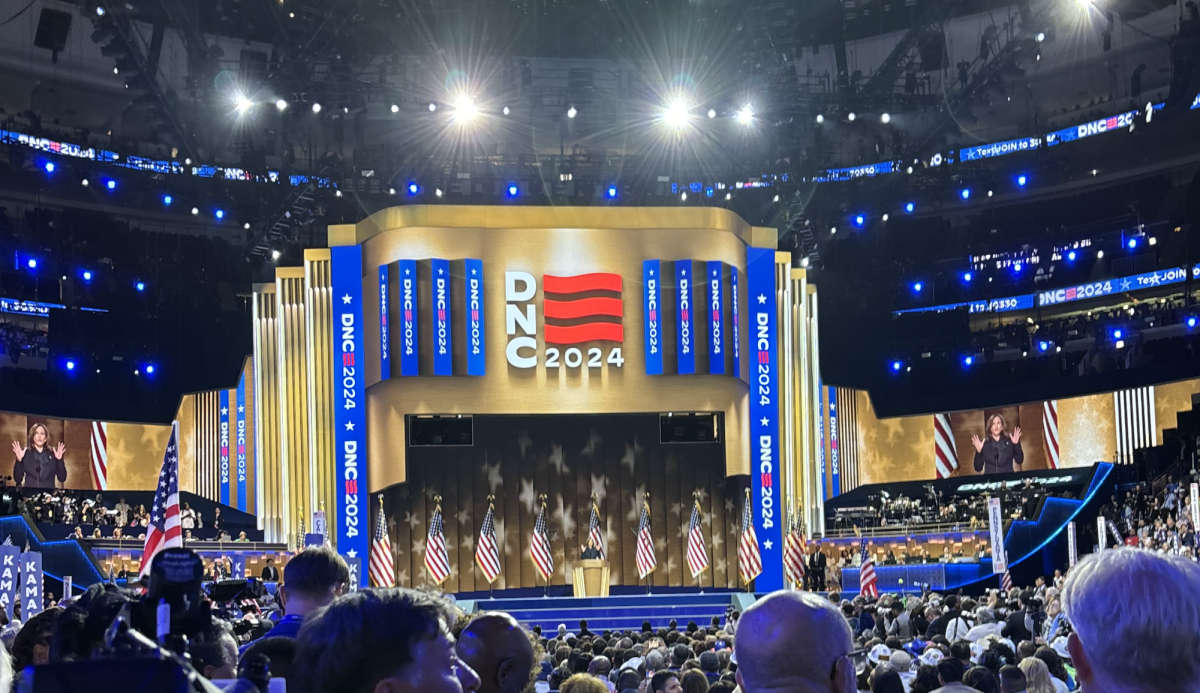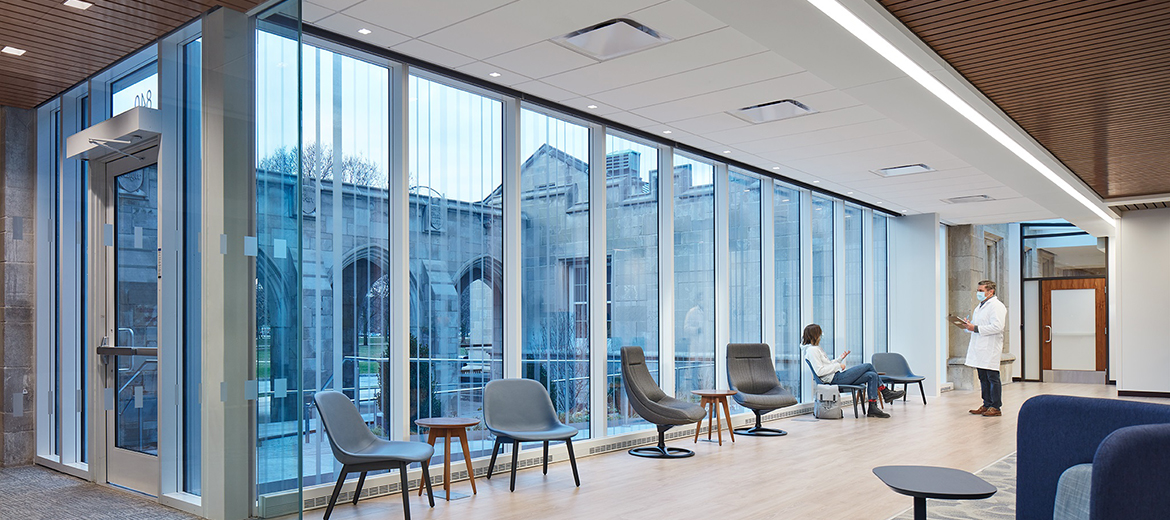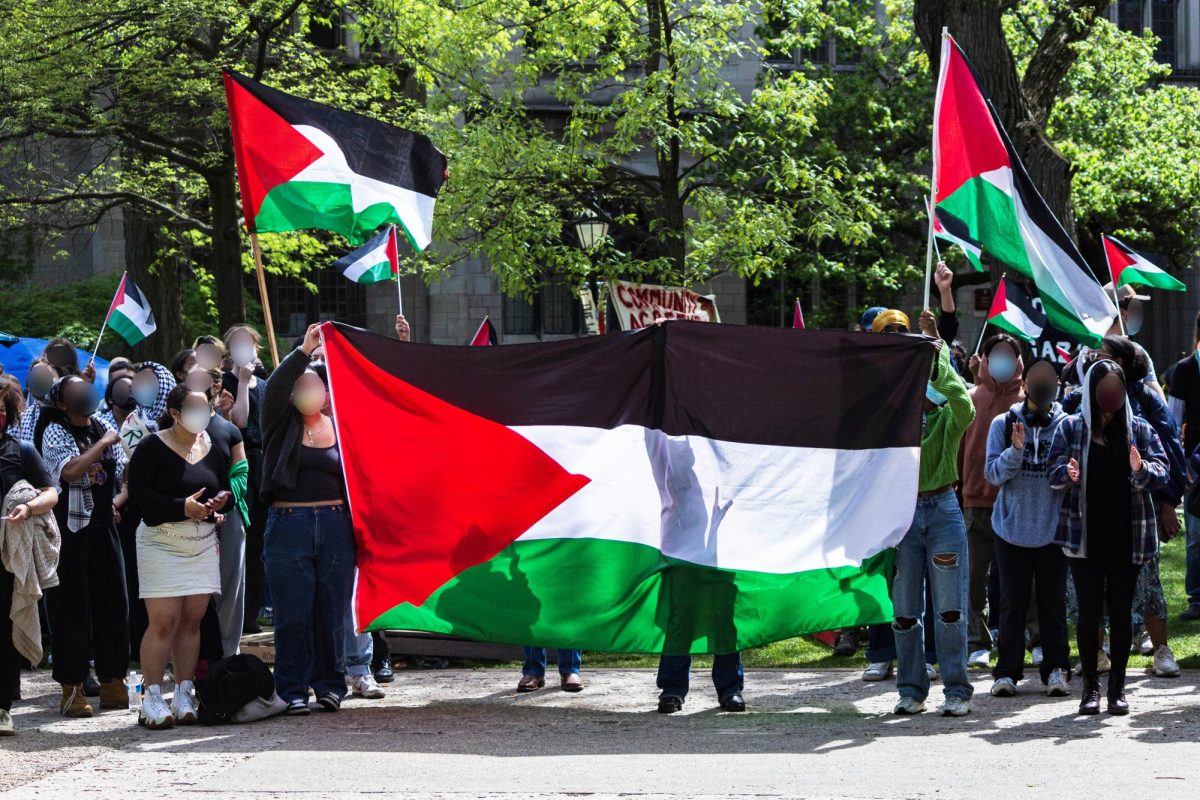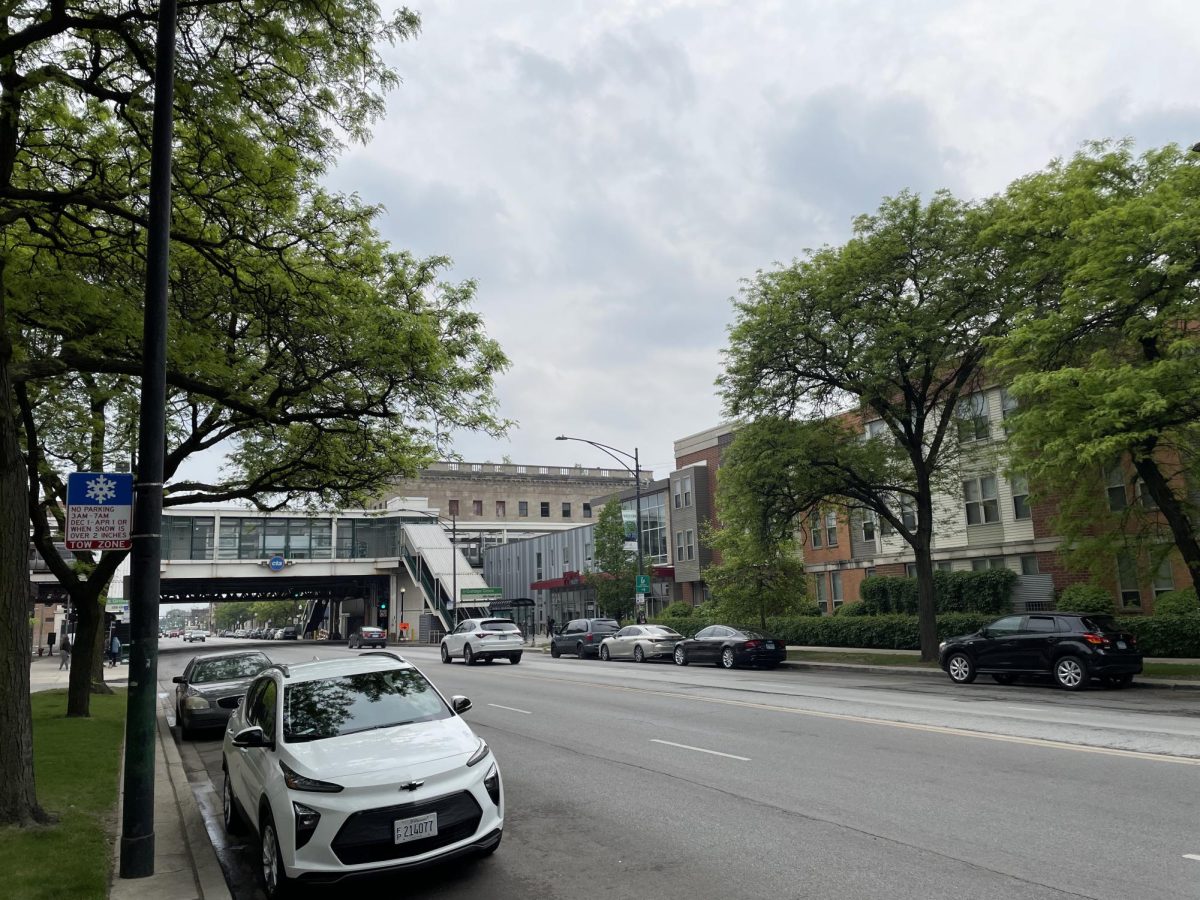The Democratic National Convention (DNC) began at Chicago’s United Center on Monday, August 19.
Throughout the week, UChicago provided housing for some of the estimated more than 500 police officers from across Illinois and from Milwaukee, Wisconsin, who provided security at the DNC. The Maroon confirmed this through a statement from a University spokesperson prior to the convention.
According to a post on X by Chicago Police, the Woodlawn dining hall was also used for a Chicago Police training session for “over 300 officers from Illinois and Milwaukee.”
On the first day of the DNC, the March on the DNC took place with the main demand of ending U.S. aid to Israel. Community members and UChicago students participating in the march included Southside Together Organizing for Power (STOP), an organization that works against the displacement of Black communities in Woodlawn and its surrounding areas.
The march consisted of a few thousand protesters, who gathered to rally at Union Park. Thirteen people, whom police said were unconnected to the main protest march, were arrested after they breached the fence around the convention center.
On day two of the DNC, prominent Democrats spoke in support of former California Senator and Democratic presidential nominee Kamala Harris. Several speakers were affiliated with the University, including former President Barack Obama, former First Lady Michelle Obama, and Senator Bernie Sanders (I-VT.) A.B. ’64.
Barack Obama, who taught as a senior lecturer at the University of Chicago Law School from 1992 to 2004, delivered the keynote speech.
“History will remember Joe Biden as an outstanding President who defended democracy at a moment of great danger,” Obama said.
Obama also said Harris is the best candidate to beat former President and Republican nominee Donald Trump and serve America.
“She’ll work on behalf of every American. That’s who Kamala is,” Obama said.
Obama’s speech came on the heels of a speech by his wife and former First Lady Michelle Obama. Beginning in 1996, Michelle Obama served as UChicago’s associate dean of student services. She was then named UChicago Medical Center’s Executive Director for Community Affairs in 2002 and became Vice President for Community and External Affairs in 2005.
In her speech, Michelle Obama praised Harris and directed several attacks at Trump. Ultimately, she encouraged voters, regardless of political affiliation, to make their voices heard and to protect democracy.
Earlier in the evening, Sanders, who graduated from the College at UChicago with a political science degree in 1964, listed some of Congress’s accomplishments since 2020.
“My fellow Americans, in the last three and a half years working together, we have accomplished more than any government since FDR,” Sanders said. “But much, much more remains to be done.”
Through the Institute of Politics (IOP), a cohort of UChicago students attended the second day of the DNC along with IOP Director of Career Development Mark Schauerte. One of the students attending was Leonardo Lopez, a second-year political science major in the College.
“I’ve never really felt that energy of people being all together in believing in something, just being there to support who they think would be best for the country,” Lopez said. “So it was a really thrilling experience to see and also to meet really prominent politicians that you see on the news all the time.”
Day three of the DNC saw the IOP hold Youth Votefest and UChicago’s Bengali Students Association Kheyal hold a protest near the DNC. The convention activities featured a keynote speech from vice-presidential nominee and Minnesota Governor Tim Walz, following high-profile figures, including former president Bill Clinton and Speaker Emerita Nancy Pelosi.
U.S. Secretary of Transportation Pete Buttigieg and Chicago Mayor Brandon Johnson were among numerous prominent speakers at the IOP’s Youth Votefest, which consisted of a series of talks and workshops intended to help attendees increase youth political engagement. The IOP held another Votefest this July in Milwaukee during the Republican National Convention.
In a speech before the Q&A, Buttigieg spoke about how Democrats had begun to take back the concept of “freedom” from Republicans in their messaging.
“Often, good government is about making sure that our freedom is enhanced through good policy intervention,” Buttigieg said.
Buttigieg also said he chose to appear on conservative television channels such as Fox News because he wanted Democrats’ messaging to reach voters it wouldn’t otherwise reach, promoting healthier conversations.
“I can’t be mad at somebody for not embracing our message if they’ve literally never heard it,” Buttigieg said.
During a live episode taping at Votefest, New York Times’ “The Run-Up” host Astead Herndon spoke with Brandon Johnson. During their conversation, Johnson said he felt the progressive movement is making headway and that he thought Democrats could win young voters over despite their current and historically lower levels of engagement.
UChicago’s Bengali students’ association Kheyal held a protest near the DNC on Wednesday in honor of a 31-year-old trainee doctor whom the perpetrator raped and murdered on August 9 in Kolkata, India.
“We demanded justice for the victim and a speedy trial, and we demanded strict punishment for the perpetrators,” said Soumik Ghosh, a member of Kheyal and a fourth-year computer science Ph.D. student. “More broadly, this was a protest against the deeply ingrained patriarchy and the misogyny that’s present in society that makes daily life unsafe for women.”
On Thursday, the final day of the convention, Vice President Kamala Harris became the official Democratic Party presidential nominee. UChicago students rising fourth year Cameron Landin of Georgia and rising fourth year Dariel Cruz Rodriguez of Florida were among the delegates who had cast their votes for her in a virtual nomination process earlier in August.
“It definitely is the experience of a lifetime. I can say that much, as one of the youngest delegates from Georgia,” Landin said in an interview with the Maroon after the convention.
Both Landin and Cruz Rodriguez said they supported Harris as the nominee but also wanted to see more action from her and her potential future administration on the Israel-Hamas war.
“For me personally, the biggest issue right now is calling for an immediate and permanent ceasefire in Gaza and stop[ping] the Palestinian suffering in Gaza,” Cruz Rodriguez said. He added that he was also disappointed that the DNC had not lifted Palestinian voices.
Landin said he was “livid” that the DNC denied a speaking slot for a Palestinian American. The denial led to a sit-in of a group of ceasefire delegates outside the United Center from Wednesday until Thursday night.
Harris said in her speech on Thursday that she would “always ensure Israel has the ability to defend itself” and that she and President Joe Biden were “working to end this war, such that Israel is secure, the hostages are released, the suffering in Gaza ends, and the Palestinian people can realize their right to dignity, security, freedom, and self-determination.”
UChicago student Simone Nelson ’26, who is majoring in Law, Letters, and Society and political science in the College, attended the DNC through the IOP as a guest in the United Center. She spoke to the Maroon in an interview on Thursday.
“It was truly the most amazing thing getting to see the Obamas speak. These are once-in-a-lifetime opportunities, and I’m just so grateful to the IOP,” Nelson said. “Being able to be around people who are really excited about voting and democracy in the election has been really energizing and a really cool experience.”















